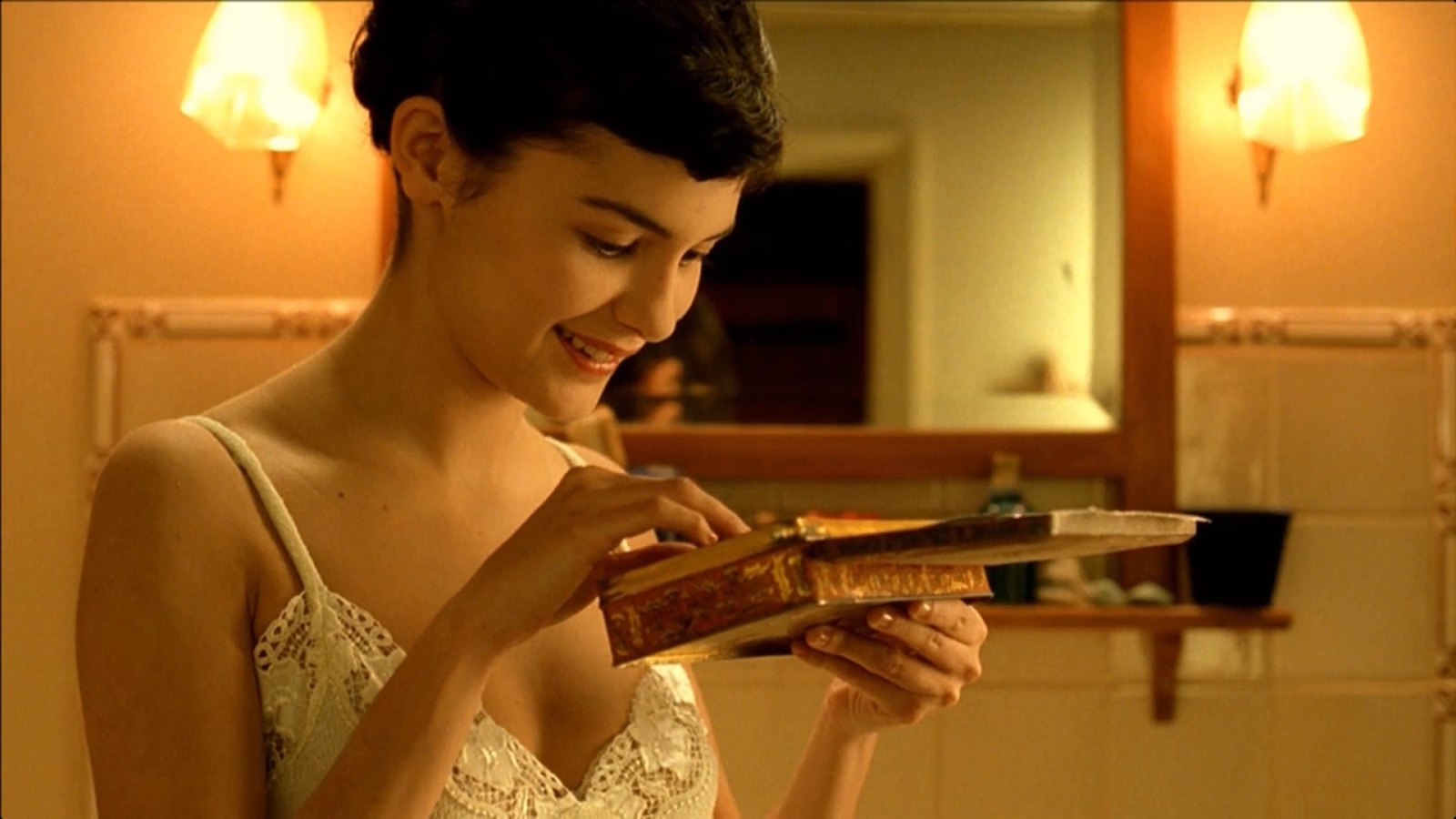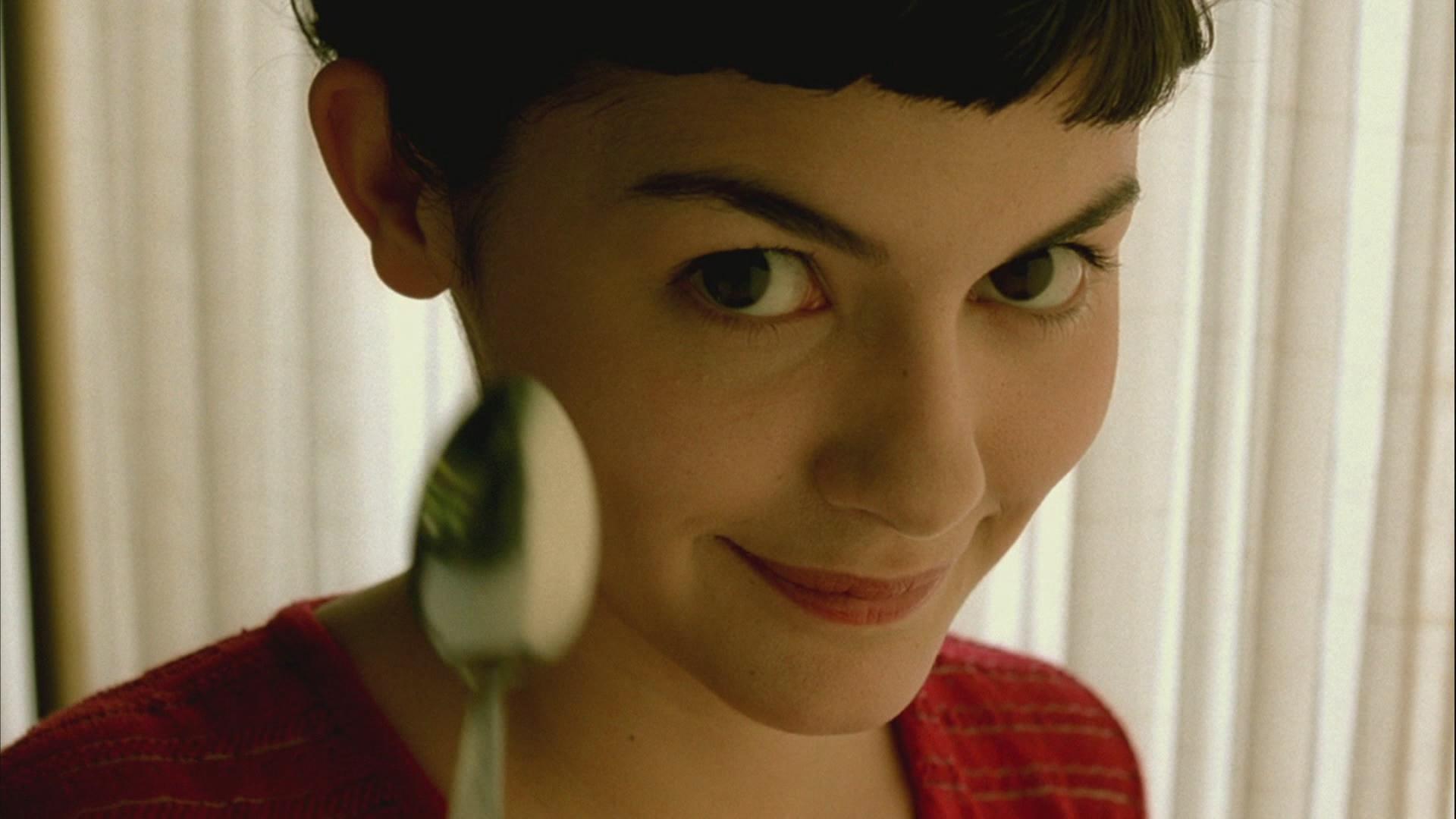
One of the most intriguing aspects of the film, aside from its visual vivaciousness, is the manner in which Amelie chooses to help others. Other supporting performers include Rufus (as Amelie's father), Jeunet regular Dominique Pinon as a disgruntled customer at the café where Amelie works, and Serge Merlin as Amelie's painter neighbor, who gives her advice on life and love. Since she never approaches him directly, but is content to leave him clues and anonymous messages, he is forced into the role of detective and pursuer, and Kassovitz displays the gradual strengthening of Nino's confidence and personality as events mature. Also like Amelie, Nino is shy about their relationship, but he is determined to pursue it. Kassovitz underplays the part perfectly, showing that Nino, like Amelie, is used to being in the background, not the foreground. Mathieu Kassovitz (the director of Hate) makes Nino an effective match for Amelie.
#Amelie film movie#
It isn't difficult to understand why this movie has been such a success with audiences around the world - it's the kind of motion picture that's both intelligent and immensely likable - just like the main character. It doesn't take long for Tautou to win our sympathy, and, once gained, it's something she never loses. Tautou brings Amelie to life with a delightful mix of shyness, energy, and mischievousness. In the process, she encounters Nino Quincampoix (Mathieu Kassovitz), who may be her soulmate - if she can ever find the courage to talk to him face-to-face and admit her feelings for him.Īmelie is a wonderfully uplifting motion picture that features a sparkling performance by Audrey Tautou in the lead role. Emboldened by her success, Amelie decides to become a force for good in her small corner of the world, helping others around her. She sets out to find the owner of the box, and her quest eventually leads him to reconcile with his son. One small event - the discovery of a box of old snapshots and toys in a hidden compartment in her apartment - causes her to take action. She has no boyfriend, no confidantes, and no real sense of purpose in life. As an adult, she works as a waitress in a café and spends her nights alone in her small apartment. As a child, she was discouraged from having friends by her neurotic mother and emotionally distant father. This motion picture proves that two hours can pass very quickly in a movie theater if what's being projected on screen truly deserves its running time.Īmelie is about Amelie Poulain (Audrey Tatou), a young woman who has spent most of her life existing in the background.

Amelie works not just because it tells an interesting story about an affable character, but because it does so in an involving and energetic manner that incorporates the right amount of comedy into the overall mixture. We learn more about secondary characters than we need to know (a tongue-in-cheek voiceover, for example, lists their "likes" and "dislikes"), and are the richer for the experience.

Like Tom Tykwer's Run Lola Run, Amelie is energized by instances of fast-cutting and unexpected inserts.

Amelie makes it clear that the primary creative force behind the earlier films' stylistic uniqueness was Jeunet. With the release of this movie, which has won critical accolades across the world, become one of the most popular home-grown films of all time in France, and captured the audience award at the 2001 Toronto International Film Festival, I have learned the answer to my question. Although Caro hasn't made a film since The City of Lost Children, Jeunet has continued in the business, accepting the Hollywood offer to helm Alien: Resurrection, then returning to his native France to direct Amelie.

Years ago, while watching Delicatessen (in 1992) and The City of Lost Children (in 1995), I wondered which of the co-directors, Jean-Pierre Jeunet or Marc Caro, was more responsible for the films' quirky tone and striking visual style.


 0 kommentar(er)
0 kommentar(er)
